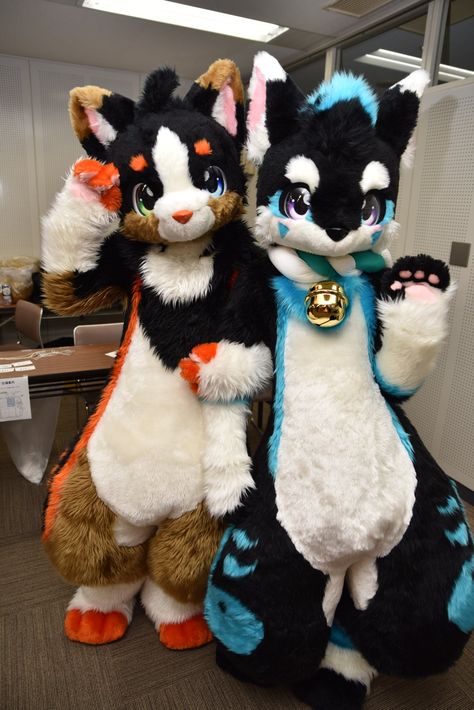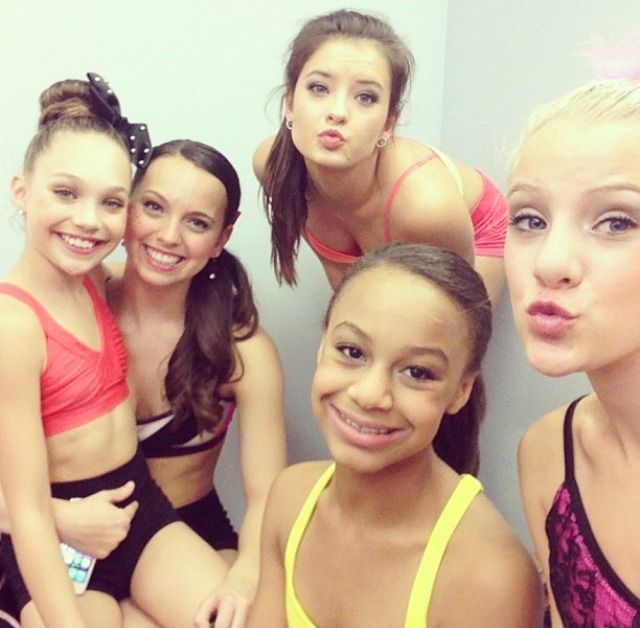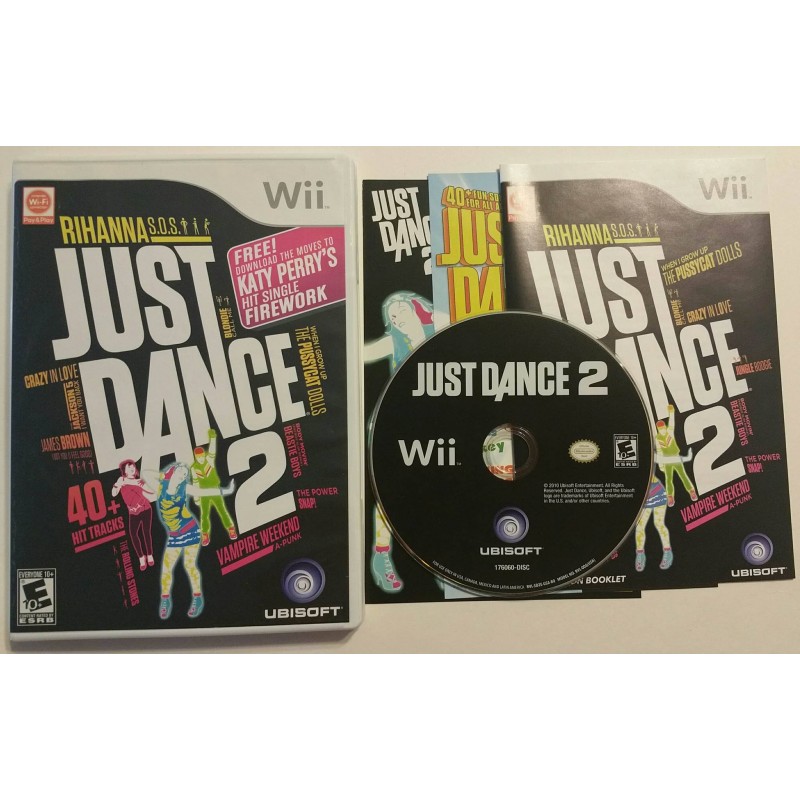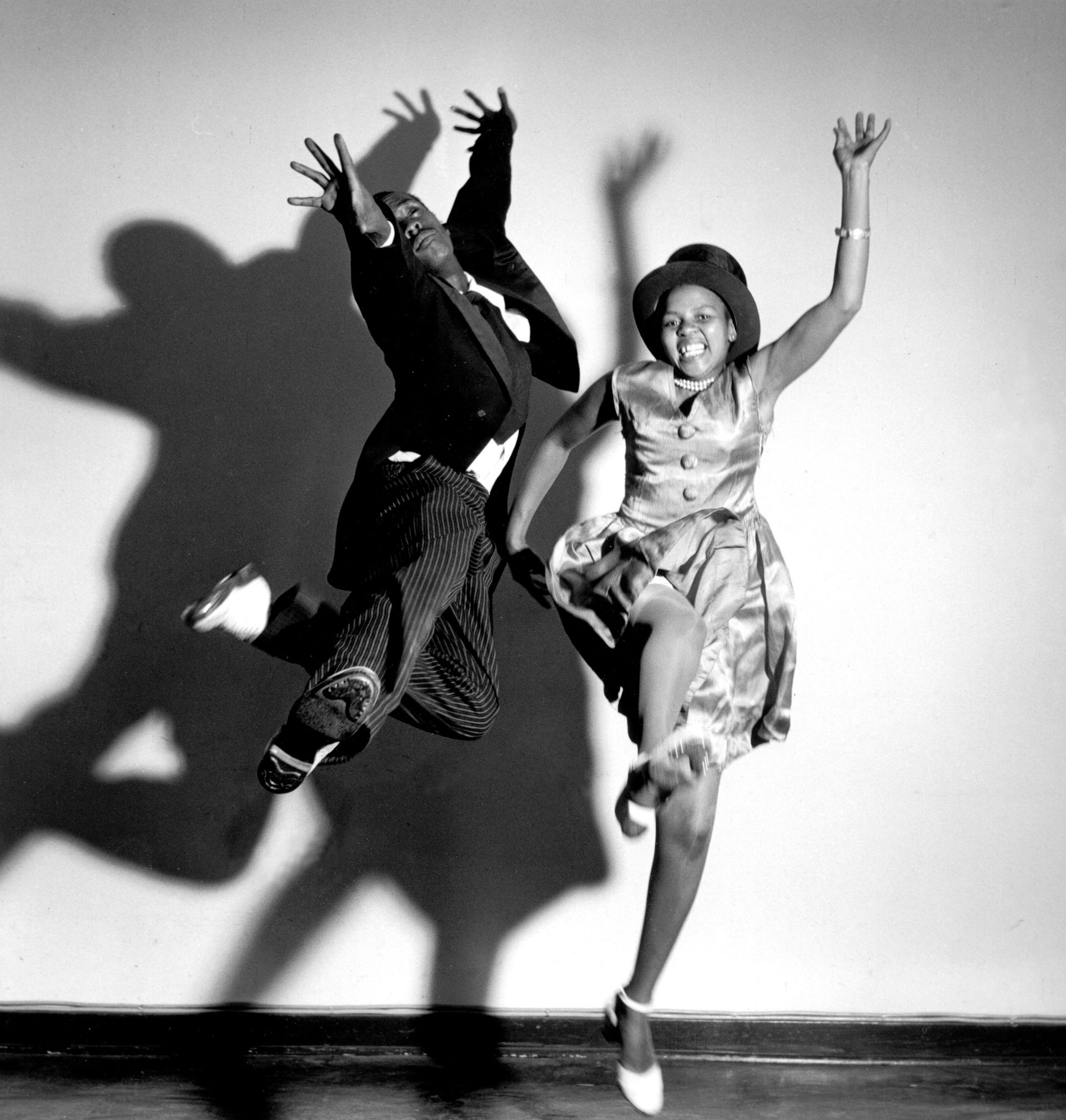How to organise a dance competition
How to Organize a Dance Competition
Dance competitions are a great place for dancers to showcase their talent, while meeting other dancers and growing their community. Dance studios looking for dance school marketing ideas have a number of potential avenues to pursue, including hosting dance competitions.
We think it’s one of the best ways for you to boost your brand’s visibility, for a number of reasons. It’s a great opportunity for cross-promotions and partnerships, getting noticed on social media, and growing your local dance community. While organizing a dance competition is no walk in the park, if you can pull it off, it will be a great step forward for your business’ exposure. Here are some things to think about, when creating and managing a dance competition to grow your school.
RELATED: Growing your Dance Studio on a Budget
Do your ResearchFirst, look around at the other relevant dance competitions, so you can do some market research. Depending on the caliber of your dancers and the types of competitions they attend, you may have to look at local, state, national or international dance competitions. What are the fees for dance schools, participants and guests, in your area? Do they provide refreshments for guests? What do they do well and what could they improve on?
Ask your dancers who have spent a lot of time in competitions, to see what to do and what not to do, when running competitions. If you are located in a major city, you will likely know a few dancers who have traveled and competed internationally – an excellent knowledge and experience base.
E-BOOK: 6 Key Features of a Membership Management Solution
Organize and Plan
Once you’ve figured out who you would like to have be a part of the organizing committee and you’ve crafted an overall vision of what you want to see at your dance competition, you’ll have to figure out how to execute. What ticket sale platform will you be using? How will you deal with a large number of guests during intermissions, food and washroom breaks? Where are you sourcing trophies or prizes from? Who will be determining timelines and who will enforce them? Don’t forget, if you find event sponsors (a great way to stretch your budget further), they will likely want some input as well.
The organizing committee will need to examine all of these factors, in order to determine the best way to make the completion fun and talent-filled, while running efficiently. If you’re organized from the get-go, you increase your chances of things going smoothly and people enjoying themselves.
Social Media Is King
Social media marketing should be a cornerstone to any business, along with an overall digital marketing plan. Engagement is what you’re looking for and a successful, social media-friendly dance competition should help produce a ton of that. You can encourage people to correctly tag your school and hashtags, by having your MC mention it, as well as having it on pamphlets and posters. Capitalizing on the new Facebook Live and Instagram Live features can also be great way to further spread your message. You can even purchase a custom Snapchat filter, so all of the snaps can have your branding on it; just make sure it looks on-brand and doesn’t get in the way of the subject (or people won’t use it!)
Find Sponsors and PartnersWhile running a dance competition is one of the best dance school marketing ideas, it’s not cheap.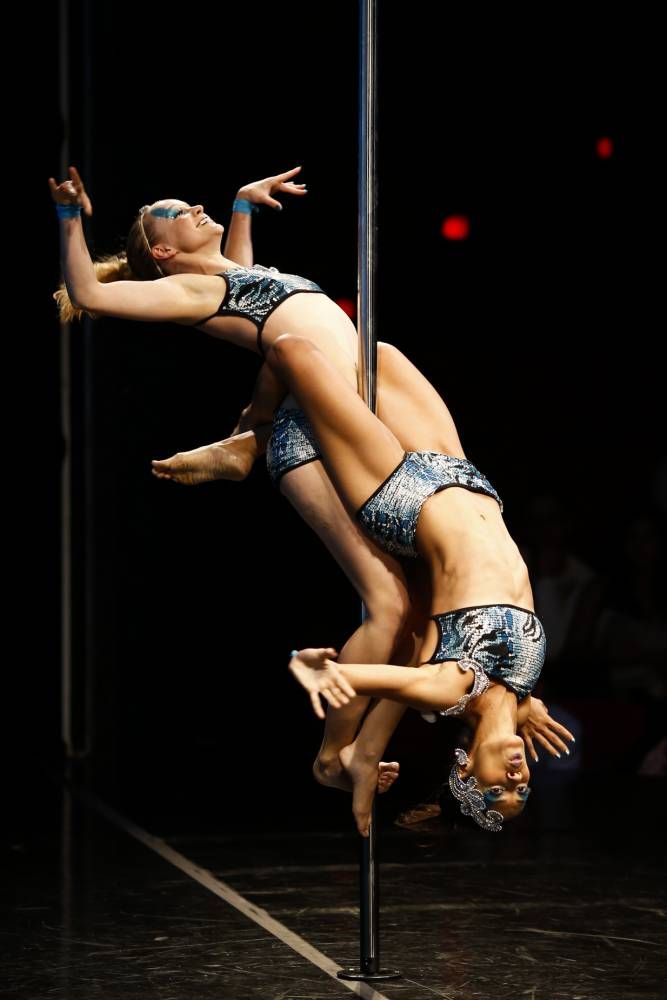 You will have to pay for the venue, vendors, organizers, staff, trophies and more. To help you cover the costs and to possibly turn a bit of a profit, you’ll need sponsors. Make a list of businesses that share a similar target demographic as your dance school, without them being a competitor — juice bars, athletic wear shops, yoga studios, and lifestyle brands are just a few potential examples.
You will have to pay for the venue, vendors, organizers, staff, trophies and more. To help you cover the costs and to possibly turn a bit of a profit, you’ll need sponsors. Make a list of businesses that share a similar target demographic as your dance school, without them being a competitor — juice bars, athletic wear shops, yoga studios, and lifestyle brands are just a few potential examples.
You’ll have to provide incentives for them to join, which means you’ll need to find an accurate projection of the number of eyes that will see the sponsor’s logo and/or information. Don’t forget to contact the media, so you can create even more publicity under this dance school marketing idea.
PerfectMind's dance studio management software helps you grow your student base, team, and business efficiently. Investing in PerfectMind’s PaaS solution means there is no software installation or hardware required. You also don’t pay extra for updates we release each quarter. Our cloud-based solution allows organizations to scale faster and more efficiently.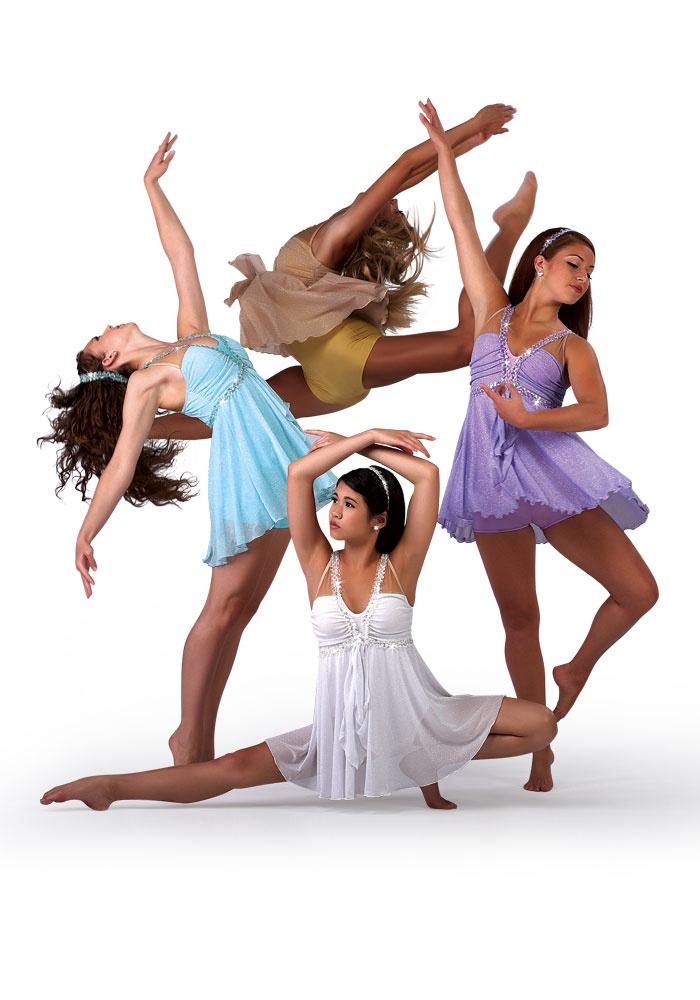 Learn more about our dance school software solutions now!
Learn more about our dance school software solutions now!
22 Dance Competition Strategies
Congratulations! Whether you have decided to try out your first dance competition, or if this is your third one this year, this is a milestone worth celebrating. In the words of Obi-Wan Kenobi, "you've taken your first step into a larger world."
This article is designed to help give you tips on how to extract the most improvement from that decision. To be clear, this is a 22 step strategy to give you the best return on investment for a dance competition. You can use the entire list, or turn a single entry into your strategy.
Not only will a dance competition improve your dancing, it should also improve who you are as a student and competitor in the process.
Whether you're reading this the week before a competition, or six months in advance, the tips will be laid out based on your proximity to the event:
- 6 Months in Advance
- 3 Months in Advance
- One Month Out
- At the Competition
- After the Competition
6 Months in Advance
1.
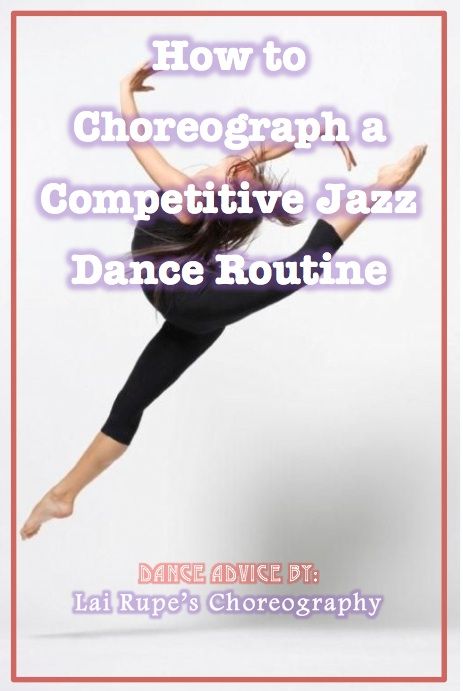 Don't Just "Plan" Early
Don't Just "Plan" Early There's an interesting divide when you think of planning something and committing to it. You can plan to get in shape, write your novel, or take dance lessons, but until you commit yourself to it, the vague planning stage is easy to wriggle free from.
The best first step for any big dance event is to commit early. You can do this by marking out your calendar, informing your teacher, and securing your deposit. Why? Because the moment you take a decisive action towards participating, the more decisive your teacher can be on your strategy for improvement.
2. Take Inventory
In case you missed it, this is a great time to look up How to Marie Kondo Your Dance Program. With this approach you can have a transparent look at what projects need the most attention and is the perfect way to make the most of your visits with dance consultants.
3. Set Some Layered Goals
Your Arthur Murray teachers do this every week. Instead of just sharing a goal, we look at three different types: Safe, Stretch, and Ultimate
A Safe Goal is your basic survival goal.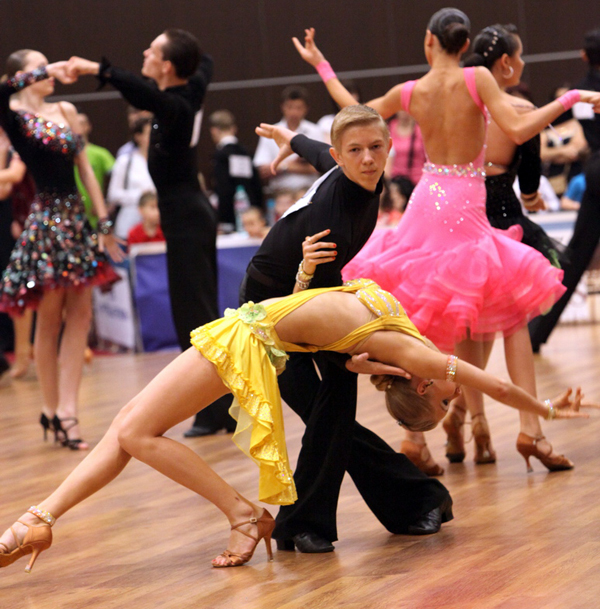 What are some things that, no matter what, we know we have in our control to achieve? These can be things like "by the time we go to the competition, we should have at least one advanced pattern integrated into our open freestyles" or "have a short choreographed opening for six dances by the competition."
What are some things that, no matter what, we know we have in our control to achieve? These can be things like "by the time we go to the competition, we should have at least one advanced pattern integrated into our open freestyles" or "have a short choreographed opening for six dances by the competition."
A Stretch Goal is something that is currently a touch out of reach, but can be attained with a little effort (a stretch). "Upgrade all of our associate level closed freestyles to full level by the competition" or "have 30 seconds of choreography finished by the competition in 8 dances."
An ultimate Goal is something that can go outside of your control or may take a longer timetable to reach. By stating these early, it gives a process that exceeds the current competition and turns any productive results into bonuses if achieved earlier. For example, "Have hip action show up in all rhythm dances on video" or "have 90 second open freestyles finished in 9 dances."
3 Months in Advance
4.
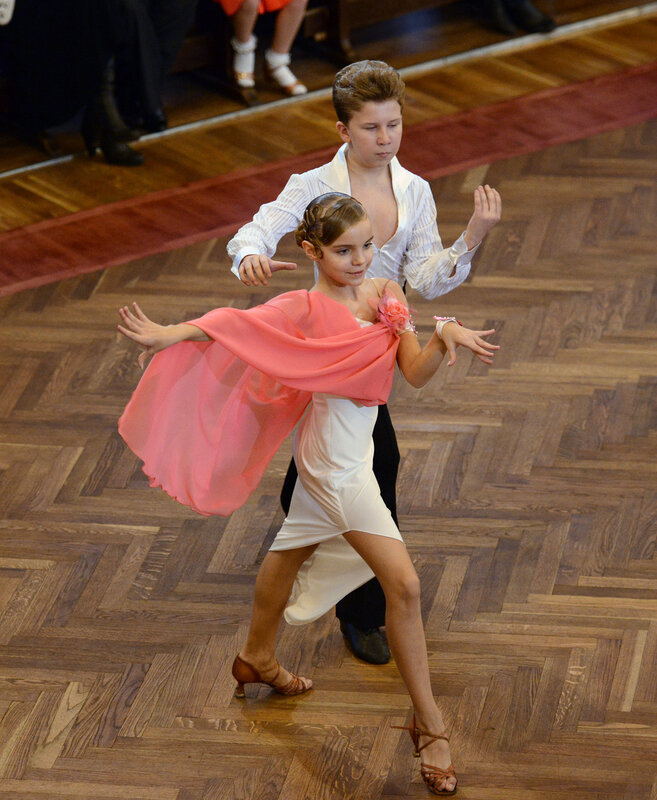 Use Your Coaches Wisely
Use Your Coaches WiselyEvery Arthur Murray consultant is like an expert tour guide for the competition you're going to be attending. It's important to utilize them to help you accelerate your goals (#3) and get a better handle on what they are typically looking for at an event of that caliber.
The article Use These 3 Dance Coaches is a great example of how to enlist the help of a consultant for things like choreography, technique, or finishing details. Just by committing early to the event (#1) and sharing that with the next dance coach, you'll be well on your way to receiving a far better return on investment with your competition.
5. Expand Your Net
While in the 3 Month window of your dance competition, this can easily zoom in your focus on only the highest priority dances and events that you care about. Unfortunately, this can leave out some great opportunities.
The sooner you can laugh, smile, and enjoy yourself on a competition floor, the sooner your dancing will start to resemble what it looks like in the studio.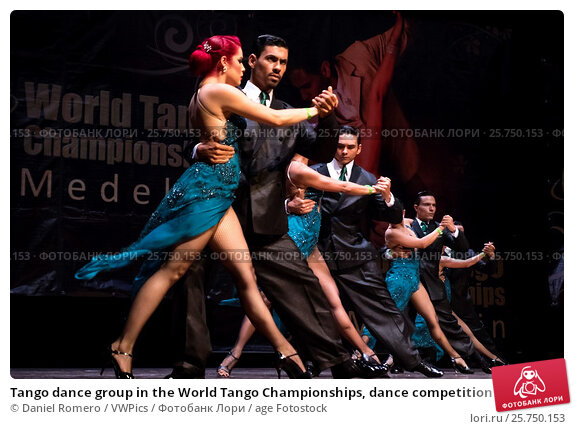 This can be done by adding some new or "low priority" dances to your roster.
This can be done by adding some new or "low priority" dances to your roster.
This isn't a slight on any of these dance styles, but a newer dance has less criteria and can allow you to enjoy the music because of its simplicity compared to the others. Whether that comes in the form of Country Western dances, the Merengue, Hustle, or Polka - these dances are all fun, may not have as much depth for your dance program, and will therefore help you achieve a much more important goal of smiling, burning off nervous energy, and giving you a much needed break in the action.
6. Recalibrate Your Schedule
If you haven't done so already, with 3 months to go, it's probably a good time to start making adjustments to your schedule to ensure that your goals (#3) can be met.
If you think of your dance program like a fitness program, it's important that each area of your program - closed syllabus, open syllabus, and routines are all getting the appropriate attention. In addition, things like technique lessons, lead and follow lessons, and exploring some of the minor dances (#5) are a great way to keep your schedule just as fun as it is productive.
The goal is to do as much as possible now to lock in muscle memory, rather than waiting until the last minute and clogging up your mental memory.
One Month Out
7. Fun & Drills
With two weeks to go, you're in a window of time where there won't be a lot of changes to your choreography or last minute additions to your dance program.
Your goal during this time is to lock the physical details in while reducing the stress or worry in the process. This can be done by dancing competition simulations, working on finishing details, and breaking up any monotony with some of your fun dances (#5).
8. Find Your Key Words
There is a mental filing cabinet you've been filling up for each and every dance. One of the biggest things that causes that "deer in the headlights" look is when you're actively attempting to sift through those mental files at a dance event.
Instead, let's try something else. What would be the most important, descriptive word you could use to associate with a particular dance? Maybe is "glide" for the Foxtrot, or "Tell the story" for the Waltz.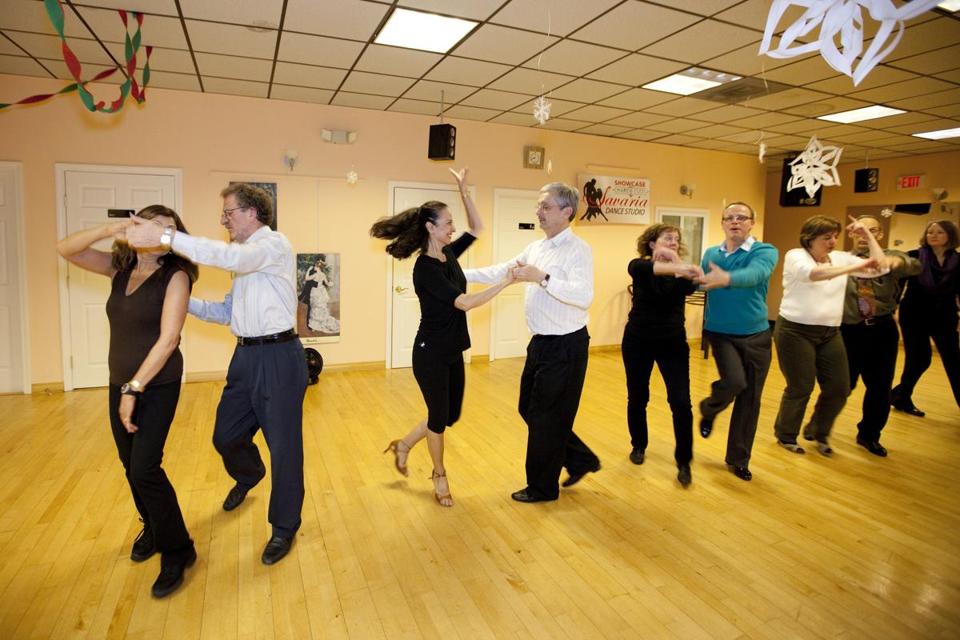 This helps the most important, keyword related, elements bubble to the top of your brain when you're at the event.
This helps the most important, keyword related, elements bubble to the top of your brain when you're at the event.
With two weeks out, this exercise may be more productive than anything rote memorization can help you do. It narrows the field of choices, and allows you to bypass the "remembering" and focus instead on execution.
9. Find the Milestones
This is an excellent opportunity to celebrate the milestones that you've achieved with organizing your projects (#2) along the way. The quote, "you measure what you treasure" is the perfect summary for why this step is vital.
The event itself isn't the process. The event itself is the culmination of the work you've done. There will be a lot going on at the event, so take the time now to celebrate the milestones and take inventory of the goals you set out to achieve.
10. Emergency Protocols
Every school, at every grade level, will have some type of drill to prepare the students for an emergency.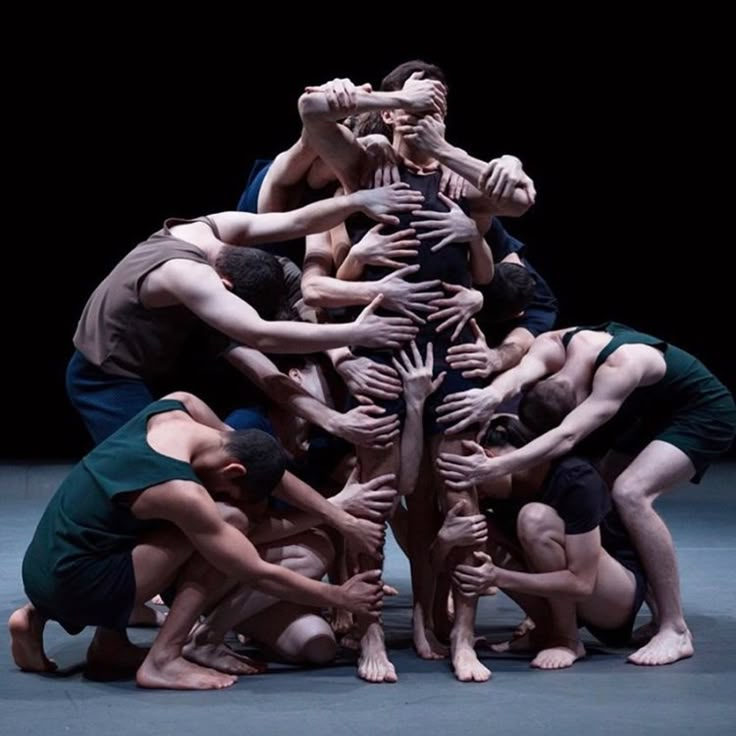 This is the time to do the same for your dance competition.
This is the time to do the same for your dance competition.
Whether those are physical emergencies like "what do we do if someone bumps into us on the dance floor?" or goal related emergencies like "what do we do if we start to feel disappointed at the event?" Outlining your responses to these situations before the event is like conducting a fire drill before there's a fire.
Any performance or production in any industry will have something that doesn't go exactly according to plan. So why not plan for that? Doing so before the event levels up your strategy and adds one of the most important skills to your dance hobby: Resilience
At the Competition
11. Worry Reduction
If you've been following this process so far, there may be a lot of potential worry that has been averted. Weirdly enough, this can be a double edged sword.
On one hand, you're primed and ready for action. You're not taxing your brain and cramming in as many forgotten dance details at this stage.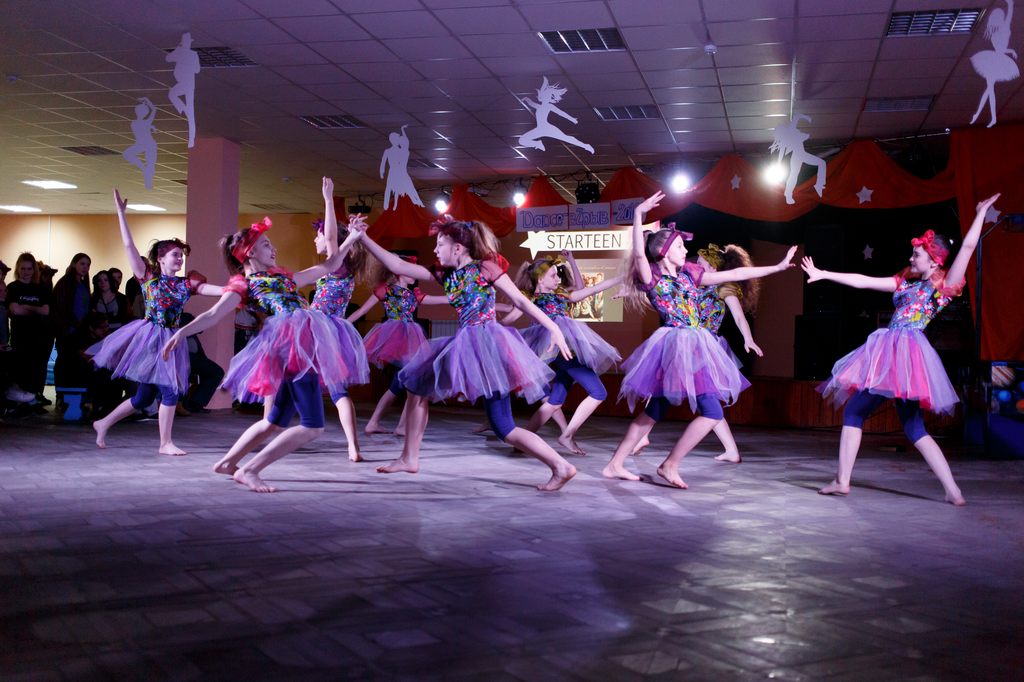 On the other hand, the hotel of worry in your brain now has a vacancy. And just like any hotel in the world, your first instinct will be to fill it.
On the other hand, the hotel of worry in your brain now has a vacancy. And just like any hotel in the world, your first instinct will be to fill it.
This may come in the form of worrying about the hotel room, the schedule, the amount of time to change in between the events, or even your hair and makeup. This isn't suggesting that these things aren't relevant, but just like a woman preparing to go into labor, the goal is to reduce the amount of worry on your plate, focus on your most important job at hand, and let the professionals relieve those burdens from you.
12. Err on the Side of Communication
The last thing that anyone wants is for a concern to turn into a distraction for your dance competition experience. It's important that you make a pact with your teacher, before you start dancing, that you will err on the side of communication.
Any professional in your life that you've enlisted to help you improve in an area needs open channels of communication to help you reach your goals and demonstrate their ability to help..jpg) Whether it's out of sheer curiosity, a stubbed toe, or a moment of frustration - your teachers are equipped to handle those concerns and keep you focused on the right things.
Whether it's out of sheer curiosity, a stubbed toe, or a moment of frustration - your teachers are equipped to handle those concerns and keep you focused on the right things.
13. Strength in Numbers
One of the biggest surprise benefits from attending a dance competition is the community. From the team you participate with, to the larger Arthur Murray family you meet when you get there, the support and encouragement is unmatched.
In order to feel the full benefit of that support, it's important to stay in close proximity with your team. Not only does this virtually guarantee that you won't miss any of your dances, but it also helps to dramatically reduce any feelings of frustration that can boil over to a much more negative situation if left alone.
14. The Double Benefit
Think of the last time you went to a sleepaway camp. How quickly were they able to take large groups of people and transition them from nervous and homesick to rowdy and ready for more?
One of the best methods we can employ at a dance competition is a page straight out of the sleepaway camp playbook: Screaming.
When you cheer for others on the dance floor, you're not only supporting the other dancers you know or appreciate, you're also releasing nervous energy in the process. It's a double benefit. Not to mention, in most cases, the people you cheered for will reciprocate the gesture when you're the one dancing.
15. The Goals, The Results, and a Steak Dinner
If you decided to pay for a steak dinner and the chef brought you a complimentary piece of Tiramisu, how would you feel? Whether you ate a bite or devoured the entire thing, you'd undoubtedly enjoy the gesture.
Now, in the same scenario, would you ever set out to pay for a steak dinner with the goal of getting a free dessert? Probably not. "I'm going to hand you my credit card for this bill provided that you give me a free dessert" is probably not in the spirit of free dessert giving by the management.
Considering all of this, think of your development as a dancer through the process of this competition as your steak dinner. You invested time, effort, and resources to achieve what you've achieved. The free dessert are the results. How you place, the marks you get, are outside of your control. If you approach them as an unexpected bonus, instead of an expectation; Your dance competition skills will improve both physically and emotionally.
You invested time, effort, and resources to achieve what you've achieved. The free dessert are the results. How you place, the marks you get, are outside of your control. If you approach them as an unexpected bonus, instead of an expectation; Your dance competition skills will improve both physically and emotionally.
16. Don't Forget Your Bookends
If you've taken the steps to assign keywords to your dances (#8) and layered goals (#3) then consider them both bookends between your dances.
"What's our keyword for this dance?" can be asked and answered as you're walking onto the dance floor. That's your first bookend.
"How did we do with our goals on that one?" will take inventory of the big picture vision for the event and for that dance. That's your second bookend.
We all have an inner critic. Leaving out these bookends is like posting a help wanted ad in your brain for critique. Don't allow that position to be filled by keeping these bookends consistent.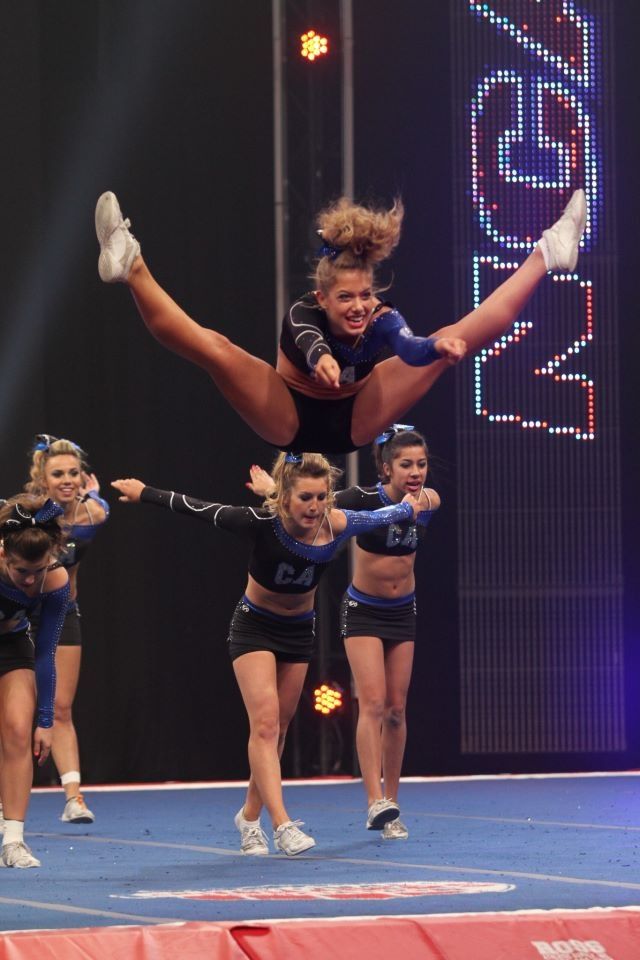
17. Hand Over the Keys
It's always best to go into any challenging situation with a strategy. Take, for instance, going to a bar with some friends. If you were the driver, but plan on drinking, the responsible thing to do is to hand your keys over to a designated driver.
You may even take it a step further by saying, "if I try to take these keys from you at any point tonight, you have my permission to leave without me."
This is "handing over the keys" and here's how that might go at a dance competition. If you understand what your normal system defaults are for handling a little pressure, you can share those "keys" with your teacher, and operating instructions for how to help if things get, well... pressurized.
"I tend to get really quiet when I'm stressed but I know that isn't going to help me. So you have my permission to bombard me with questions, get me up and dancing, anything to keep me from going into a funk."
18. Improvement Isn't Just a Feeling
Your feelings can have more rise and fall than a waltz.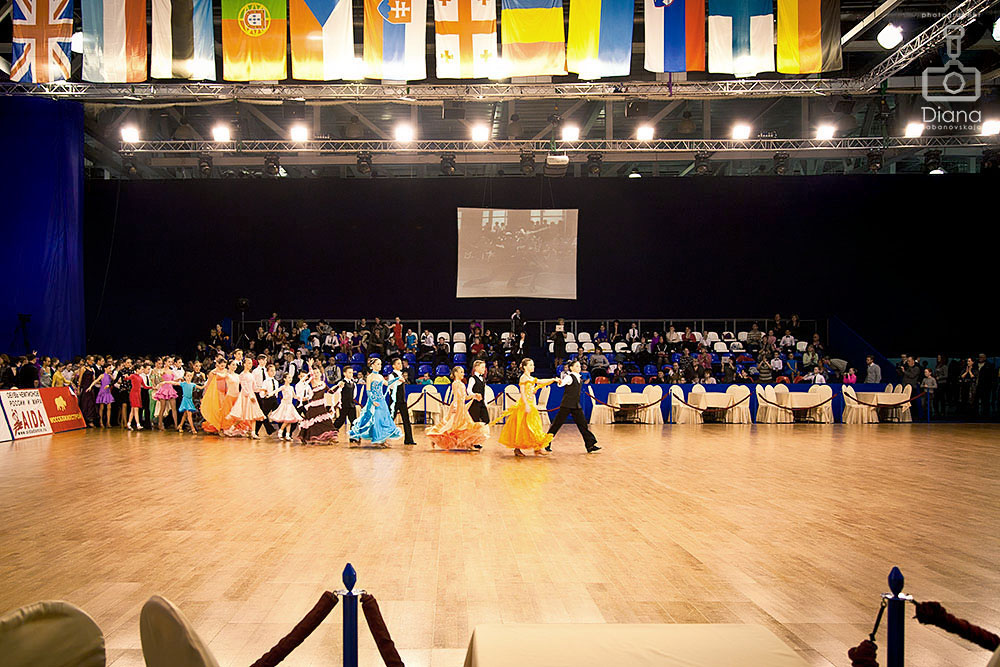 It's time to put this into perspective, there are facts out there that you're making progress that your feelings may want to ignore.
It's time to put this into perspective, there are facts out there that you're making progress that your feelings may want to ignore.
Think of feelings and facts like painting. Your feelings want to work in broad strokes, huge Jackson Pollock style splashes of paint. The facts will work with precision brushes. Facts can find the fine detail of a process.
Whether it's you, or your teacher, taking some time to zoom in on the facts of your progress will prevent you from zooming out of the ballroom with just your feelings.
19. Without an Asterisk
Your feelings (see #18) can stand in the way of a great thing. Namely, a compliment. However unworthy your feelings may lead you to believe you are, it's important to know that accepting a compliment should be done with the same grace as a Viennese Waltz.
A compliment is a face to face standing ovation. Receive it without apology or refusal. Smile, thank them, and remember that you are the image of good dancing to someone else, and a reflection of your teacher and studio.
After the Competition
20. Laugh a Little
Every dance competition is designed for rapid growth. The dancer you were when you arrived will have evolved by the time you are finished.
This should make it easy to find some early moments that you can share and laugh about. After all, the sooner you can laugh about an obstacle, the sooner you can learn from it.
Take a few minutes on your last night at dinner to share some learning moments. Dole out highlights and funny lowlights in equal quantity.
21. Chase the Burn
Imagine if your brand new fitness trainer encouraged you to stay home from the gym until you weren't sore anymore. People in fitness know that you have to chase the burn and work out even, and especially, when you're sore.
Dancing is no different. There may be some physical or mental fatigue after a dance competition. That is to be expected, but the last thing you want is to let the skills you developed for the event to atrophy.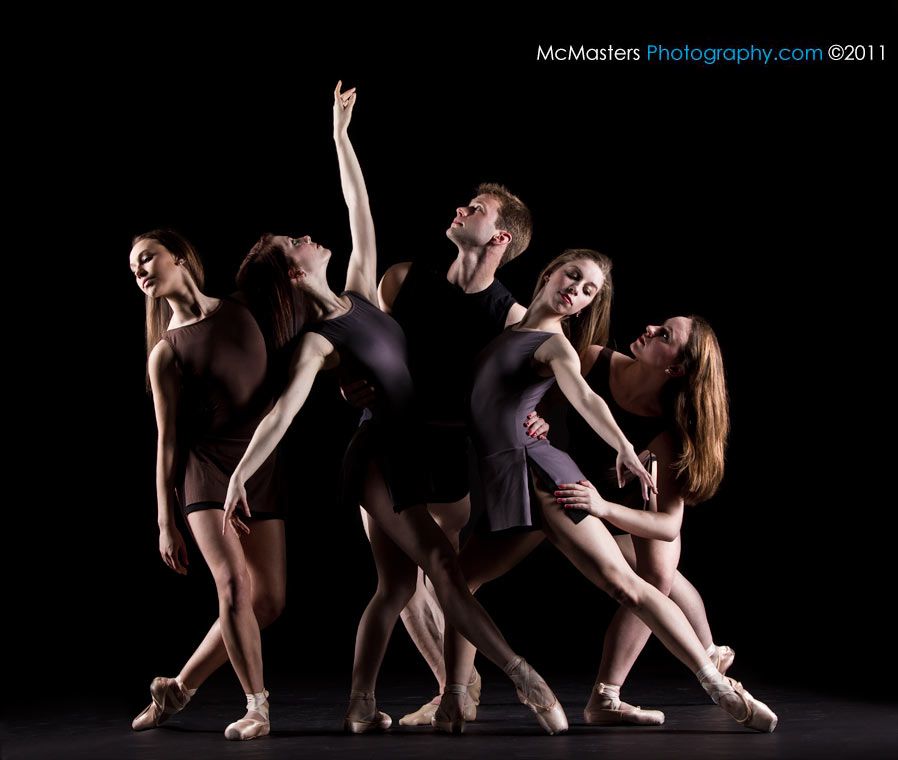
Plan set of debrief lessons to follow up on what you learned at the event. Use this time to refine areas of your routines that may not have held up as originally expected. Everything will have more clarity the sooner you follow up after returning.
22. Load the Next Plan
You aren't a destination dancer. Sure, you may have just danced at a 5 star hotel at a world class resort, but destinations aren't your thing.
Your dance progress is a journey. A marvelous, challenging, life-changing journey. So plan accordingly. Line up your next dance competition, set up your next set of goals, and feel free to go back and re-read this article as needed.
Final Thought
This article was originally designed for 10 key points. But going step by step through the process kept revealing more and more essential tips. Many of these tips were once missing ingredients that caused a negative effect on a student's competition experience.
Hopefully, this article (and the 12 additional tips) can equip you, the reader, with an improved strategy both in mind and body.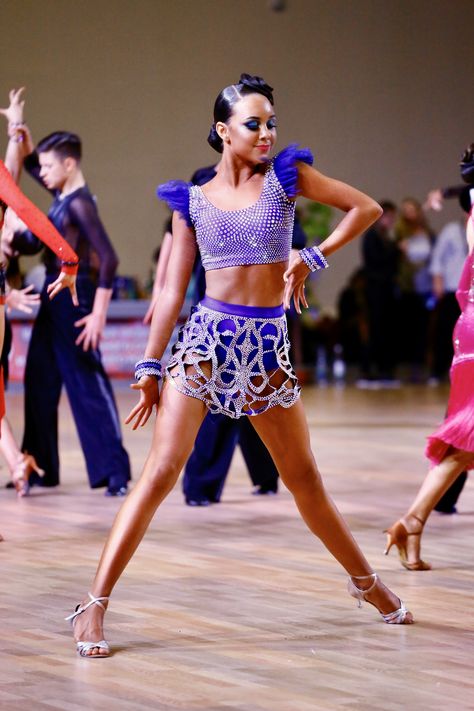 To add some facts where there would otherwise be feelings, and dial back the distractions so you can hone in on the magic.
To add some facts where there would otherwise be feelings, and dial back the distractions so you can hone in on the magic.
How to organize a festival | buduysvoe.com
The most diverse festivals are an integral part of the culture of many countries of the world. Indeed, during such holidays, a driving atmosphere is created that attracts guests from other cities and even countries. That is why almost everyone has heard of the hall festival of colors in India, or the oatmeal festival in the USA and others.
The festival market in Ukraine is no less dynamic, some festivals are replaced by others when they live their life cycle: they are born and die. After all, the market is changing. Therefore, now events are held not only in million-plus cities, but also in small regional centers: cinema, jazz, gastro and other formats. However, everything is constantly evolving and improving - innovations and new technologies are being applied, the quality of sound and equipment is changing.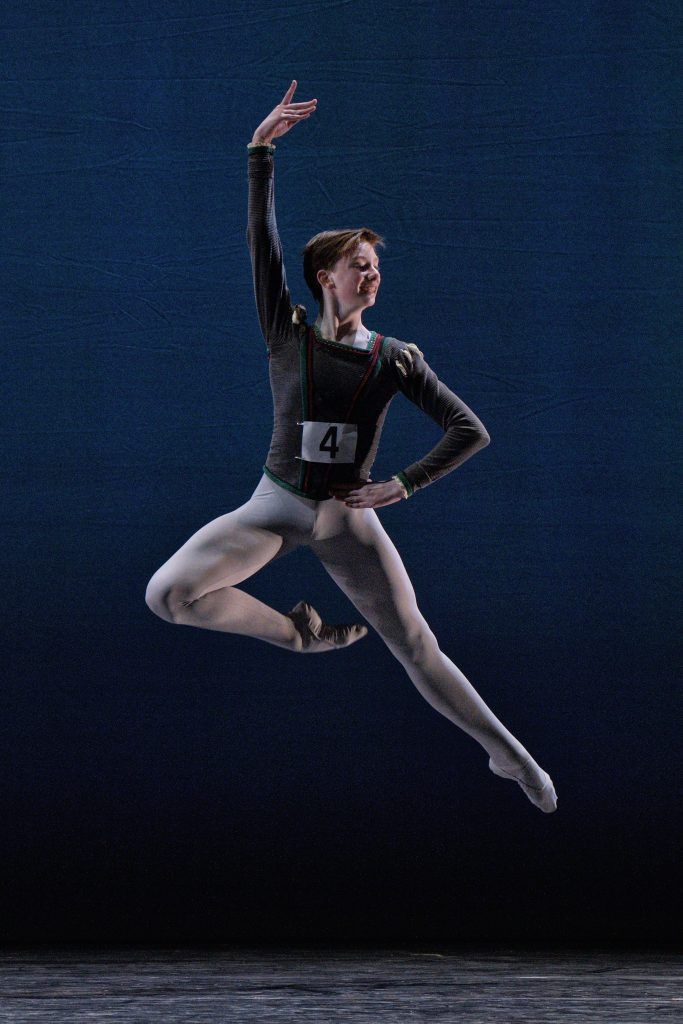 Vivid examples are Atlas Weekend, which this year was visited by about 530 thousand guests, or Leopolis Jazz Fest 一 by 100 thousand guests, and many others.
Vivid examples are Atlas Weekend, which this year was visited by about 530 thousand guests, or Leopolis Jazz Fest 一 by 100 thousand guests, and many others.
In fact, many think about their own festival, but do not know about the specific steps, without which the festival is impossible. Therefore, "Build Your Own" talked with Oksana Devo, who was the founder and held the Kyiv family fest for several years in a row. She told in detail how to make a festival with many “buts”:
1. Plan the theme.
First of all, imagine who this holiday is for - children or adults; secondly, what will take place there - competitions, entertainment, master classes or concerts; thirdly, there will be food courts and what format 一 is it an “island”, a house or another format that festival guests are used to. And now count all this - not only the number of participants, but also the number of square meters that they will occupy, and draw a diagram of how they will be located.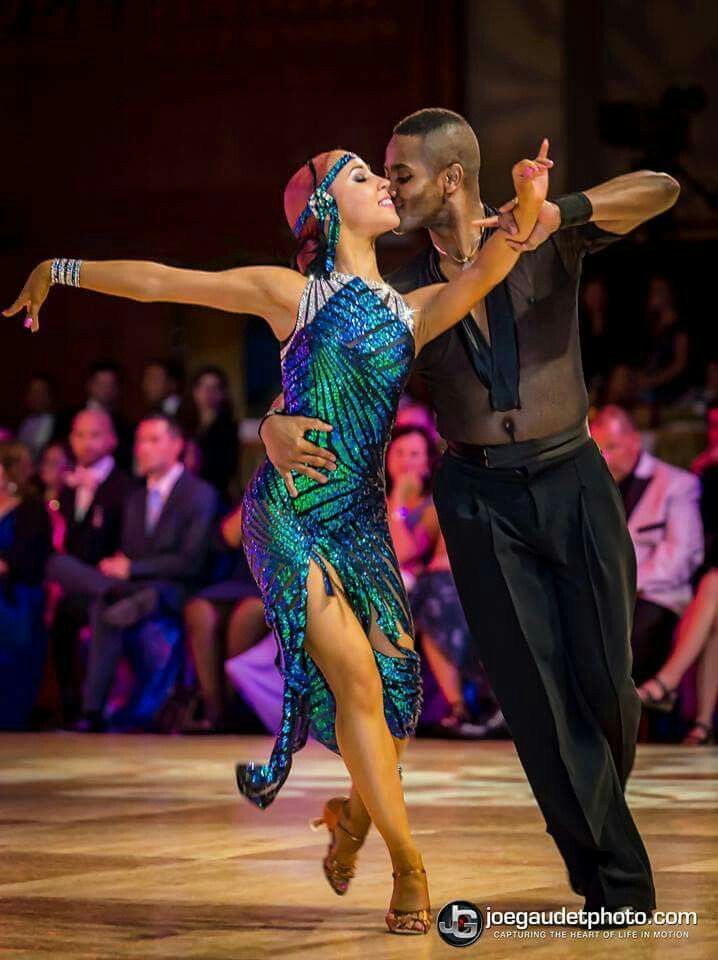
2. Allow enough time to prepare for the festival.
Indeed, first of all, plan a holiday, because a small festival without a large-scale advertising campaign on billboards and city lights is prepared in 2-3 months, and a large-scale one - in 6-12 months.
3. Pay attention to seasonality.
The festival is a seasonal business, and there are both high seasons - spring and autumn, and low seasons - winter and summer. Indeed, in the summer, many people travel around the cities, relax at sea and abroad, and on weekends they are more happy to rush to the reservoirs, and not to the festival. And in winter people spend more time at home.
4. Choose the right day for the festival.
The best times are Saturday and Sunday, but weekdays are not the best. By the way, there is an important point. Many entrepreneurs try to hold the festival during public holidays that fall on weekdays - Christmas, Constitution Day and others. Please note that these days the townspeople often take mini-vacations and leave the cities, and therefore you may not wait for the guests you were counting on, especially if your festival is highly specialized. Therefore, you should carefully weigh the pros and cons before conducting.
Therefore, you should carefully weigh the pros and cons before conducting.
5. Choose a convenient format for the event.
Festivals are usually held in parks, squares, embankments and other crowded places. Or near or inside shopping and entertainment centers. Therefore, choose a convenient format that matches the request and the venue chosen for the event.
6. Get permission.
If you decide to hold in the mall, then negotiate with the management. And if in public places, then get permission from local authorities 一 settlement, district, city councils. Yes, it is not easy, but the administrations are interested in holding events. By the way, upon obtaining permission, you can put a mark on the advertisement "with the support of ... advice." And that's not all - sometimes events receive public service announcements on the city's city lights. However, this applies to events that are planned in advance.
7. Look for funds.
Before you search, carefully calculate the costs.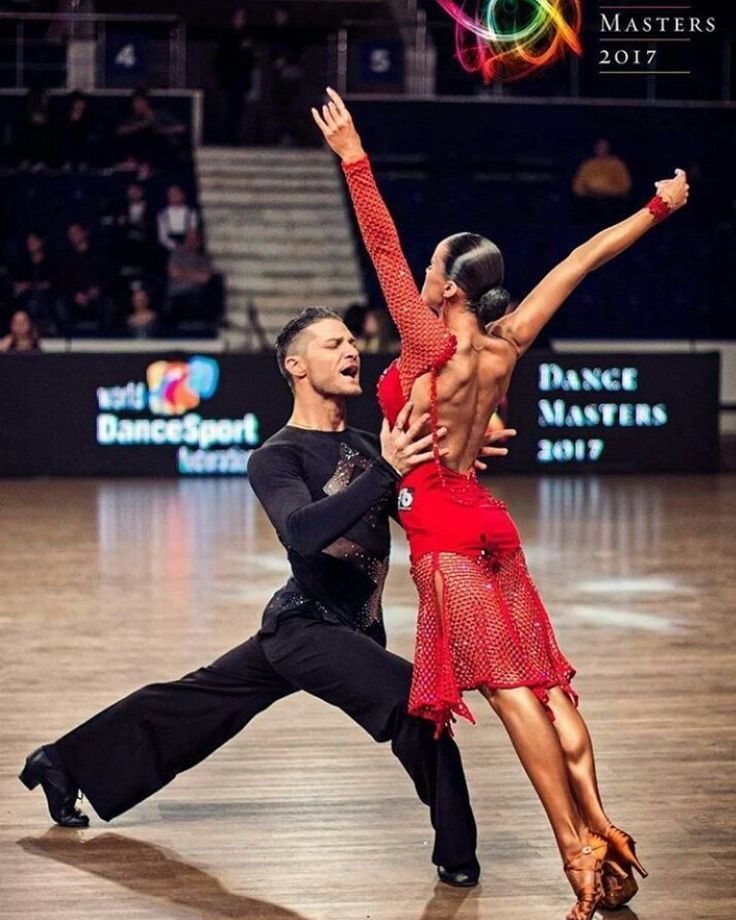 And then look for funds 一 in companies that can become sponsors. Sometimes holidays can be financed by shopping and entertainment centers. You can also negotiate barter.
And then look for funds 一 in companies that can become sponsors. Sometimes holidays can be financed by shopping and entertainment centers. You can also negotiate barter.
8. Tell everyone about yourself.
Try on the role of a "PR man". Create an event page on social networks, find contacts and invite all 一 bloggers, journalists of specialized and other publications there. But not only invite, but also write letters and personal messages. Thanks to this approach, you can get feedback about the event in the reviews, requests for comments and invitations to TV and radio broadcasts. Do not be lazy, track the output of materials and do not stop!
9. Get ready for force majeure.
The most unpleasant force majeure is rain, and both participants and guests of the holiday suffer from it. Think over a plan "B" and others, and not only those that relate to the weather, but also to participants, contractors. Calculate everything and act!
10.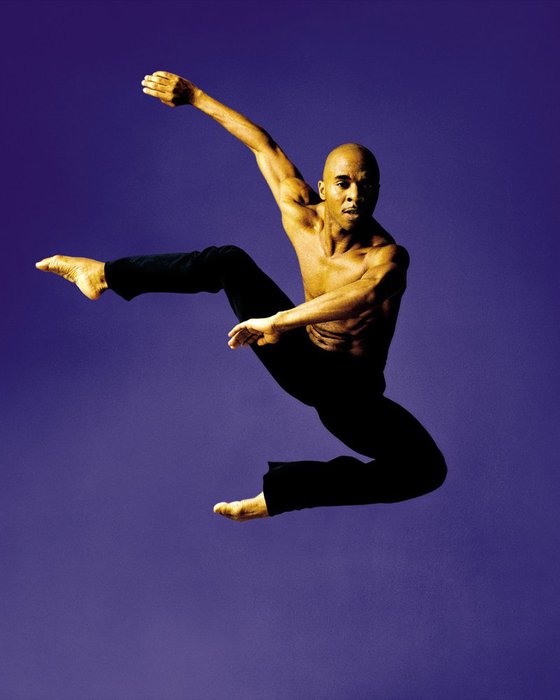 Follow market trends.
Follow market trends.
In fact, the festival market is undulating and trend driven. For example, several years ago festivals with Ukrainian goods became popular, but this wave has already reached its peak.
“Therefore, in my opinion, in the near future there will be more food and drink festivals that are already taking place abroad. After all, such a "market" has not yet been possible to do. What else? Probably, thematic festivals 一 like vegan and others, as well as sports festivals will develop,” adds Ms. Deveaux in the end.
How to organize your own festival • Instructions from IMI
Is it possible to organize a festival on your own without a big budget and the support of eminent sponsors? Yulia Ryabova, IMI editor and co-organizer of the Utrennik indie festival, discussed the key aspects of preparing a DIY festival and important points that organizers should remember in order to avoid mistakes. Matinee took place on September 7, 2019year in Voronezh: ten artists performed on two stages, including RSAC, AIGEL, Komsomolsk, Hadn dadn and other groups.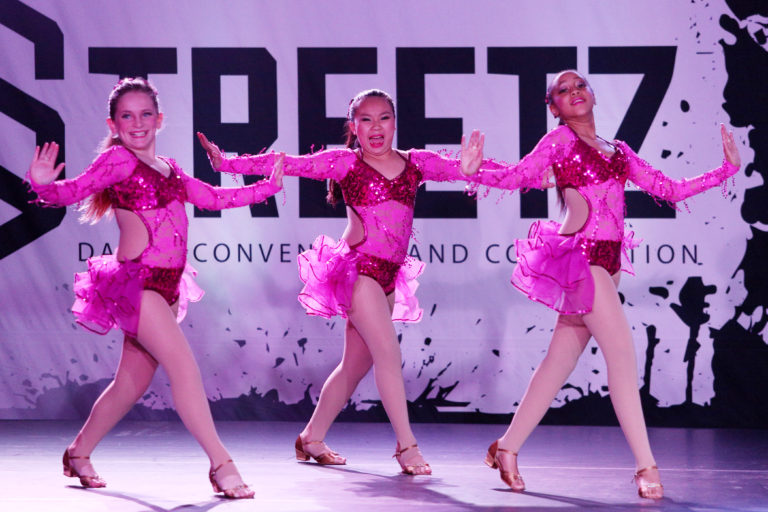 The event was attended by over 700 spectators.
The event was attended by over 700 spectators.
Before you start preparing
Decide on the concept and positioning of the festival. How do you see your festival - will it be an open-air or a series of concerts at different venues, what genres do you prefer in the lineup, how many stages do you want to use, do you need a food court and a bar, how many spectators will your venue accommodate.
Estimate the intended audience of your festival: analyze what music is popular in the region, how widespread the culture of attending events is, whether your festival has competitors, how solvent your potential visitors are and what minimum attendance you can expect. Without doing this, it makes no sense to proceed with further steps: without at least an approximate calculation of the target audience, you risk losing money by making a big event for a small number of people.
Gather the festival team, agree on working conditions “ashore” and be sure to fix them legally – even if you work with friends.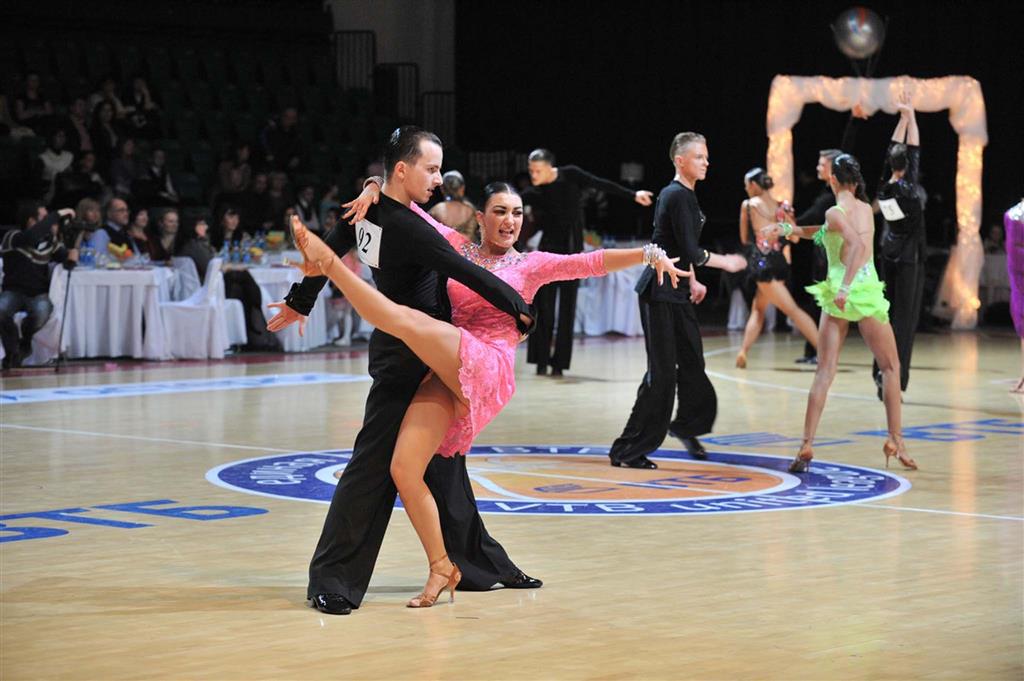 Start with a small team of like-minded people - as the festival prepares, you can expand your staff if necessary. Write down in the contract the responsibility of each party, the terms of cooperation and the deadlines for completing the tasks. The festival is a large-scale event, literally scheduled by the minute: the less uncertainty you and your team have, the higher the likelihood that everything will go smoothly, and you will not only recoup your costs, but also get a profit.
Start with a small team of like-minded people - as the festival prepares, you can expand your staff if necessary. Write down in the contract the responsibility of each party, the terms of cooperation and the deadlines for completing the tasks. The festival is a large-scale event, literally scheduled by the minute: the less uncertainty you and your team have, the higher the likelihood that everything will go smoothly, and you will not only recoup your costs, but also get a profit.
Register a legal entity - a simple IP will be enough. The status of a legal entity is necessary for concluding most agreements: from contracts with team members and technical contractors to signing documents for performing with artists.
First steps
After making sure that your festival will find its audience, and the team will approach its organization with all responsibility, you can start choosing a suitable venue. Do not forget that the site is not only space. This is also the cost of security, construction of stages, creation of the infrastructure of the festival and communication. Explore all possible options - as a rule, it is not always possible to rent a dream venue, be prepared to compromise with your desires, based on the budget of the event and available locations.
Explore all possible options - as a rule, it is not always possible to rent a dream venue, be prepared to compromise with your desires, based on the budget of the event and available locations.
Select dates for the festival. Consider all possible factors: overlap in time with other entertainment events relevant to your audience, the holiday season when potential viewers may leave, city holidays. Also check local laws on how to hold mass events and silence - in some regions, noise is allowed until 23:00, in others - until 22:00.
Make a long list of artists you would like to invite to the festival. Rank the list according to the popularity of the selected musicians, select possible headliners, performers opening the festival and artists who will form the main backbone of the festival. Contact their managers and ask for the conditions under which they agree to speak on the dates you named, as well as technical and household riders.
Calculate how much it will cost you to organize a festival with all possible options for choosing a venue and lineup variations.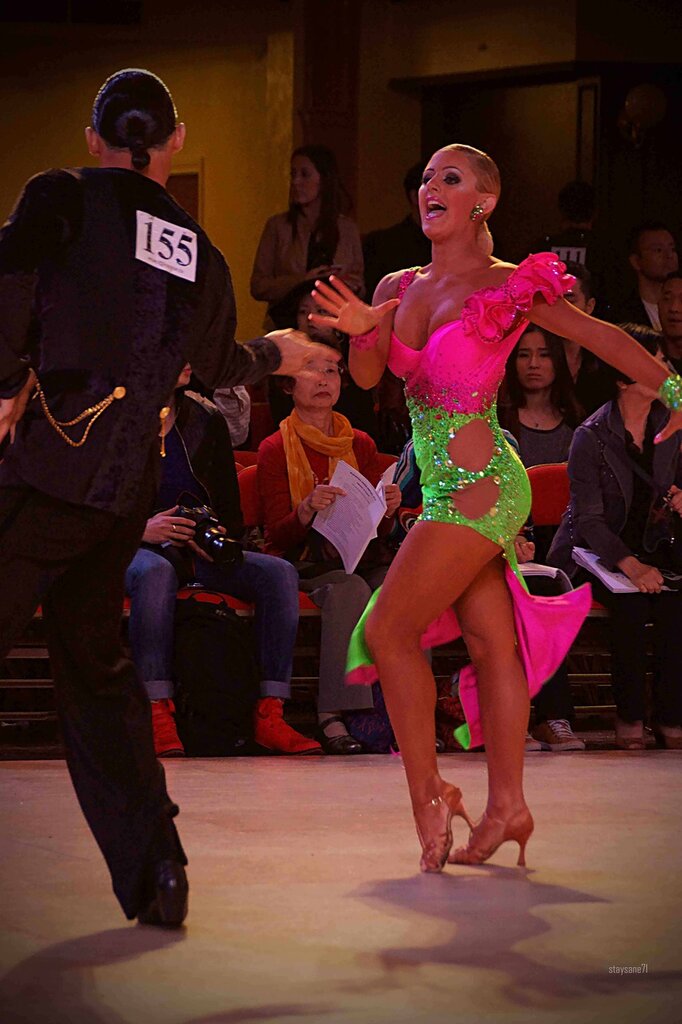 Estimate how many tickets at what price you need to sell in order to break even and make money. After comparing the results with your resources, decide on the venue and lineup. Be sure to record the agreements and prepayments made with the landlord, stage and infrastructure contractors and musicians legally.
Estimate how many tickets at what price you need to sell in order to break even and make money. After comparing the results with your resources, decide on the venue and lineup. Be sure to record the agreements and prepayments made with the landlord, stage and infrastructure contractors and musicians legally.
Learn more about which festivals an artist can perform at and what documents a musician needs to perform at the New Music Industry online educational intensive starting on July 20. Limited number of seats.
Set up a payment schedule
In the process of preparing the festival, you will spend money on its organization and at the same time make a profit from ticket sales. If you are holding a festival for the first time, it does not have an established audience for years or a superheadliner that will attract thousands of listeners, you should not count on sales in the first weeks after the announcement, just as you should not count on instant profit from early bird tickets: not all viewers ready to buy a pig in a poke.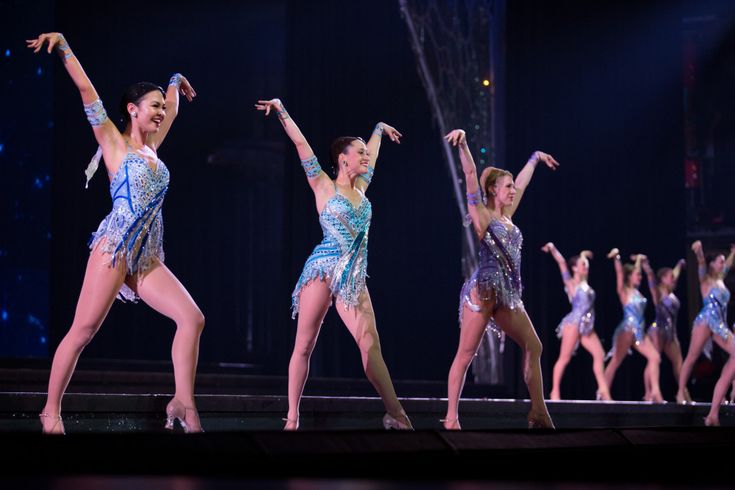 Be prepared to invest your own money early on until the public learns more about your festival and starts buying tickets.
Be prepared to invest your own money early on until the public learns more about your festival and starts buying tickets.
Make a payment schedule: fix for yourself the exact amounts and dates on which you are obliged to pay landlords, contractors and artists, according to the agreements concluded. This will allow you to evenly distribute expenses and avoid embarrassing requests to reschedule a payment.
Performance of the duet "AIGEL" at the festival "Utrennik". Photo: Evgenia NebolsinaSet up the ticket sales process
Perhaps the most convenient way to sell tickets for both the viewer and the organizer is electronic. But before setting up a festival page on one of the online sales platforms, explore all the options: different sites place e-tickets under different conditions. Ticketscloud, Radario, Timepad, Qtickets — there are dozens of such companies on the market of ticket operators today: some simply provide a sales page, others supplement the service with a set of promotional services, and still others work on a subscription system and will be convenient for organizers of recurring monthly events.
Sign an agreement with the chosen service and set up a transparent process for withdrawing money for purchased tickets from your account - all your income must be recorded in the expense-income table for greater clarity and understanding of the current financial situation of the organizing team.
Think about sponsors
The support of sponsors will help pay for the costs of organizing and holding the festival. Think about what companies might be interested in participating in your event and what you can offer them. Before contacting representatives of your chosen brands, prepare a commercial proposal for the festival - a presentation in which you talk about your event in terms of business indicators: describe the age, demographics, interests and solvency of your target audience, indicate the predicted number of viewers that you plan attract, explain why your festival may be of interest to investors as a point of contact with new consumers of their products, and indicate the cost of cooperation - from free media partnership to stage branding and other custom opportunities on a commercial basis.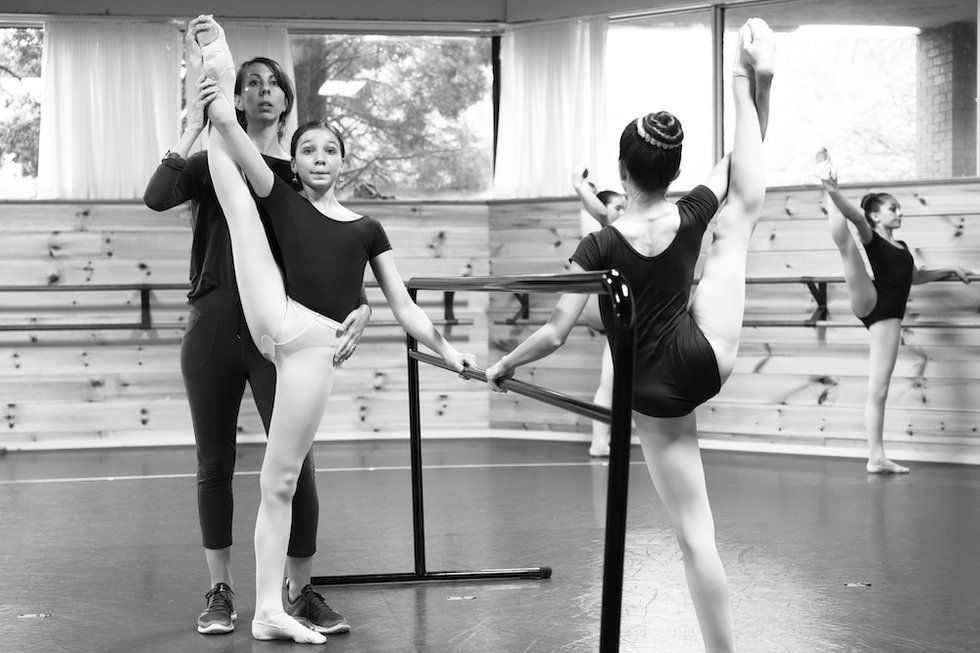
Talk to potential sponsors well in advance: budgets for marketing and similar activities are usually set at the beginning of the year - even if your proposal is interesting, it is not certain that you will be able to jump on the last car. Also keep in mind that brands can provide not only financial support, but also cooperate with you through barter: for example, in exchange for a branded area on the site. Sometimes partners offer free products for festival guests, thus helping to create the infrastructure of the event.
Mariya Parkhacheva, Director of Commercial Partners at Dikaya Mint, spoke during the webinar about how to attract commercial partners to cooperate on the music festival in times of crisis.
Think over the infrastructure of the site
The festival is not only music: hundreds of spectators will be on your site for several hours, who need to ensure a comfortable stay. Draw a diagram of the chosen location: where the stage (or stages) will be equipped, where it is better to put toilets and how many of them should be based on the estimated number of spectators, at what point you will locate the food court and bar, is it advisable to build a market for merchandise and goods of local brands and what areas you can offer for sponsorship activities.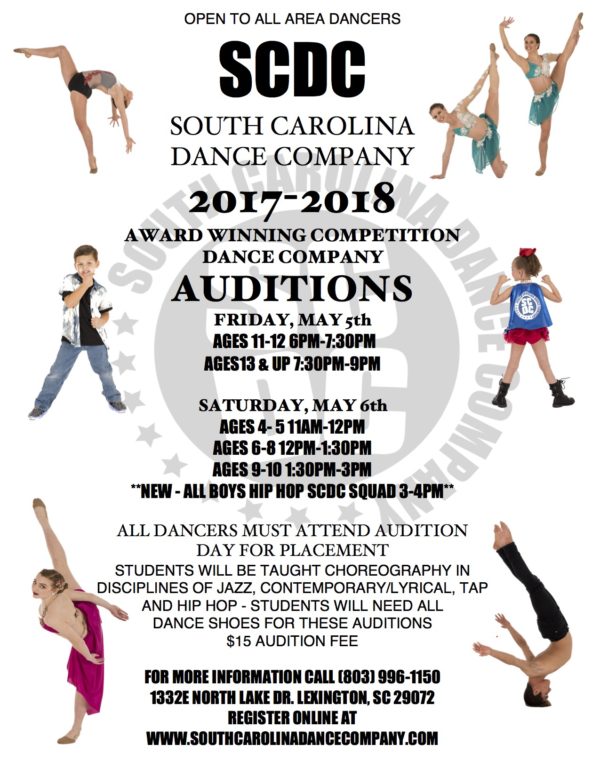 Do not forget that the comfort of the spectator plays a priority task in the process of planning the festival site: the zones must be arranged so that the visitor's routes are simple and understandable.
Do not forget that the comfort of the spectator plays a priority task in the process of planning the festival site: the zones must be arranged so that the visitor's routes are simple and understandable.
If you are renting an empty open air venue, you will also need to hire security for the duration of the festival, starting with the artists' soundcheck. There are many private security companies in the security market today - choose the option that suits you best and remember to include these costs in your budget and payment schedule. Renting an ambulance and paying for a paramedic shift is another important item that should be on your checklist. Participant safety is paramount.
Bar and food court - areas that you can close through partnerships with local establishments or commercial placement on the site for a fixed amount or percentage. When choosing food partners, please note that the menu of the restaurants you choose should include "convenient" dishes that can be quickly eaten in the conditions of the festival.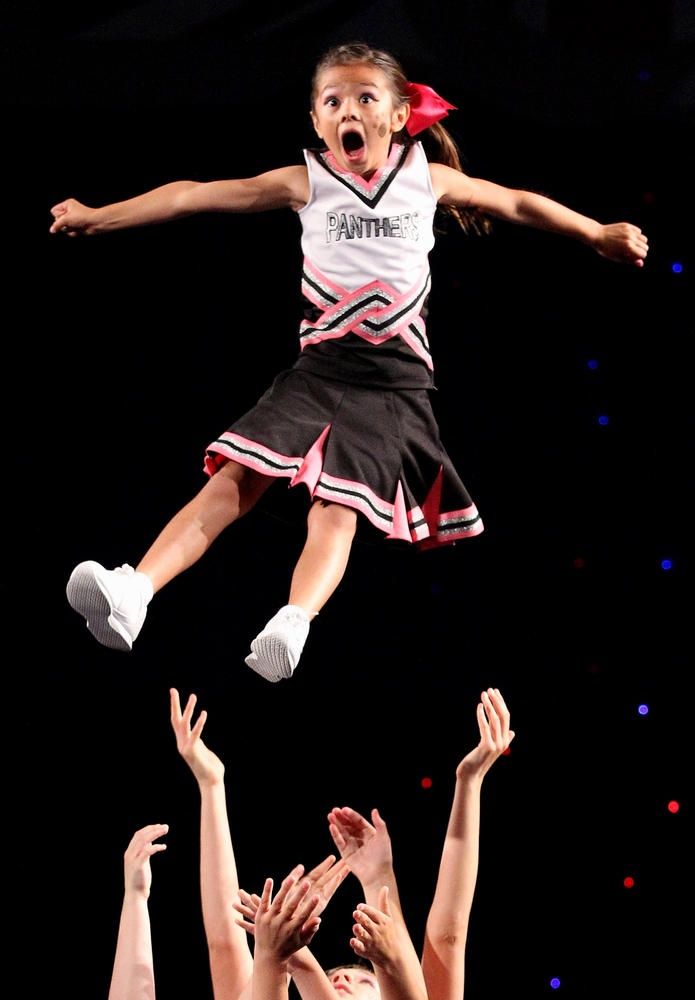 When negotiating a bar on site, remember that it is against the law to sell alcohol without a proper license. Therefore, if you do not have an exit license to sell alcohol, get a partner who agrees to sell drinks on terms agreed with you.
When negotiating a bar on site, remember that it is against the law to sell alcohol without a proper license. Therefore, if you do not have an exit license to sell alcohol, get a partner who agrees to sell drinks on terms agreed with you.
Distribute roles within the team
Responsible and efficient management is the key to the success of any event. Everyone should not do everything: when you have recruited a team and plan to conclude an agreement with each participant, clearly allocate responsibilities and fix them. At a minimum, you need a specialist who will be responsible for the functioning of the stages, a marketer to organize partnerships and promotion of the festival, a person responsible for the infrastructure and work with volunteers, and several team members who will be responsible for booking artists and accompanying them on the day of the festival. The tasks of designing, setting up advertisements, building stages and other similar tasks can usually be outsourced to contractors, but in any case, there must be a person within the team to monitor the implementation of tasks and meeting deadlines.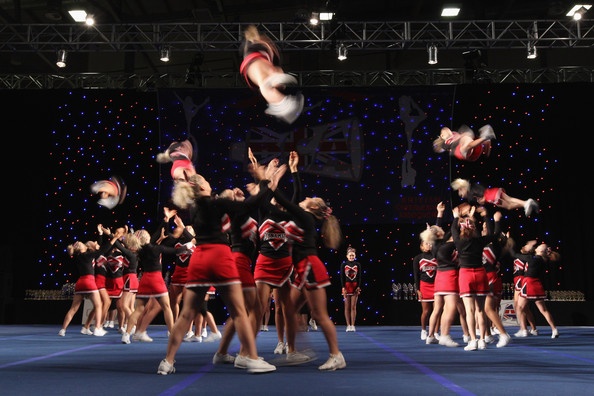
Undoubtedly, in conditions of limitations, one person can combine several functions at once. The distribution of these tasks largely depends on the scale of the festival, so when discussing the roles within the team, first of all, start from the minimum necessary to implement the plan.
Performance of the group "Another thing" at the festival "Utrennik". Photo: Evgenia NebolsinaPromo of the festival
No matter how good the lineup, food court and entertainment area are, no one will know about them without a competent promo. Be sure to start the festival channels in social networks, estimate, based on your budget, how much you are willing to spend on targeting and posting announcements in thematic telegram channels, with relevant bloggers and groups on VKontakte. Think about what media is important for you to appear in, whether you need outdoor advertising, and which of these you can close through barter - for free tickets - or on the basis of friendly relations with administrators. Find photographers and videographers in advance who are ready to shoot on the day of the festival - these materials will be useful to you after the event.
Find photographers and videographers in advance who are ready to shoot on the day of the festival - these materials will be useful to you after the event.
Do not forget that promotional activity must be maintained constantly, therefore, before starting channels in social networks, write down a content plan for each site. Estimate how many posts per week you are ready to make, on what dates you should distribute the announcements of the lineup participants, select a place in the grid of posts for partner publications, develop mechanics in advance to attract subscribers to the public and increase user activity (for example, contests or surveys). Ask the artists participating in the festival to record video invitations to their sets during the festival and publish them, including on their channels. The more people talk about your festival, the better. And be sure to attach a link to online ticket sales to every post (and don't forget to include this information in your profile descriptions).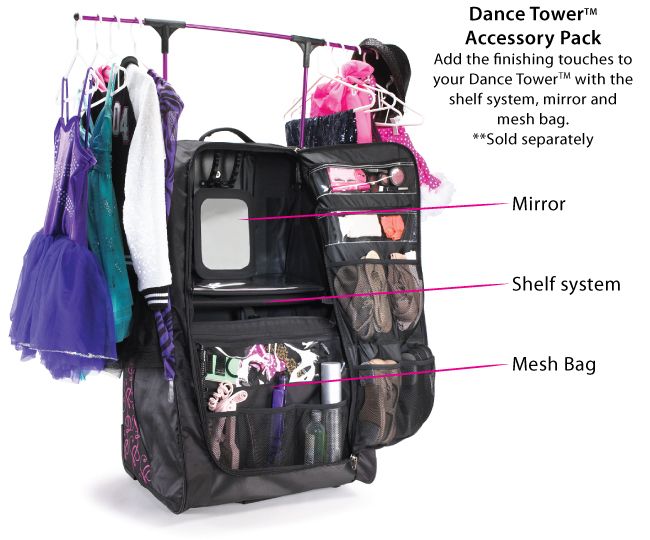
On the day of the festival - what is important to remember
When the site is ready, each member of the team knows their tasks, and tickets for the festival are sold out, that very day comes. Remember that it's too early to rejoice - you should not start celebrating success in the morning, even if you have a soldout. On the day of the festival, you must keep a sober mind and be able to quickly respond to any unforeseen situations - and without them, as a rule, not a single event can do.
Make sure all team members and volunteers have their phones charged and have full power banks with them - you need to be in touch at all times. Dress comfortably, take a bottle of water with you, give all participants a clear timeline of the festival and a schedule for completing their tasks. Conduct a briefing for stage managers, security guards and volunteers, explain what to do if the situation gets out of hand for some reason. Put payment points at the entrance for those who did not have time to buy a ticket in presale.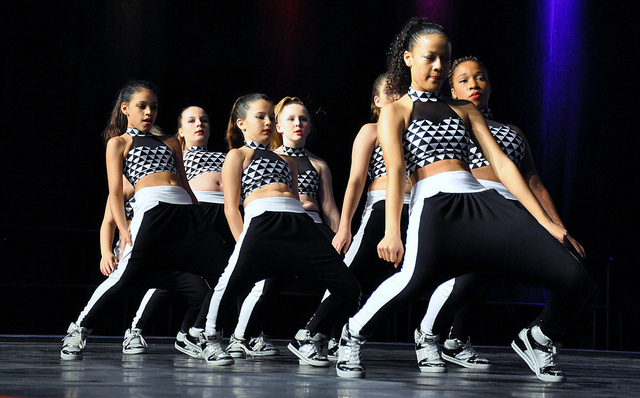
The main thing to remember on this day is that not a single festival goes perfectly, but if the organizers are well prepared, no one will notice mistakes except them.
Post-promo
Your festival has died down with success, but it's too early to relax. Post-promo is no less important stage than just the promo of the festival, it is a reserve for the future, a colorful story about how it was, for those who missed everything. Publish photo reports, remind the media with which you have agreed on a report that you are waiting for texts, post reviews on social networks and fix all these materials in a commercial offer for festival partners for the next year.
What else to read and see about the preparation of the festival
- Webinar of the Director for work with commercial partners at the festivals "Wild mint" and "SKY: theory and practice" Maria Parkhacheva on how to attract commercial partners to cooperate on a music festival in a crisis.
- Webinar by Nick Babin, program and booking director of the Bosco Fresh Fest, about how the Chess & Jazz festival was created - from concept to implementation of the idea.

Learn more
